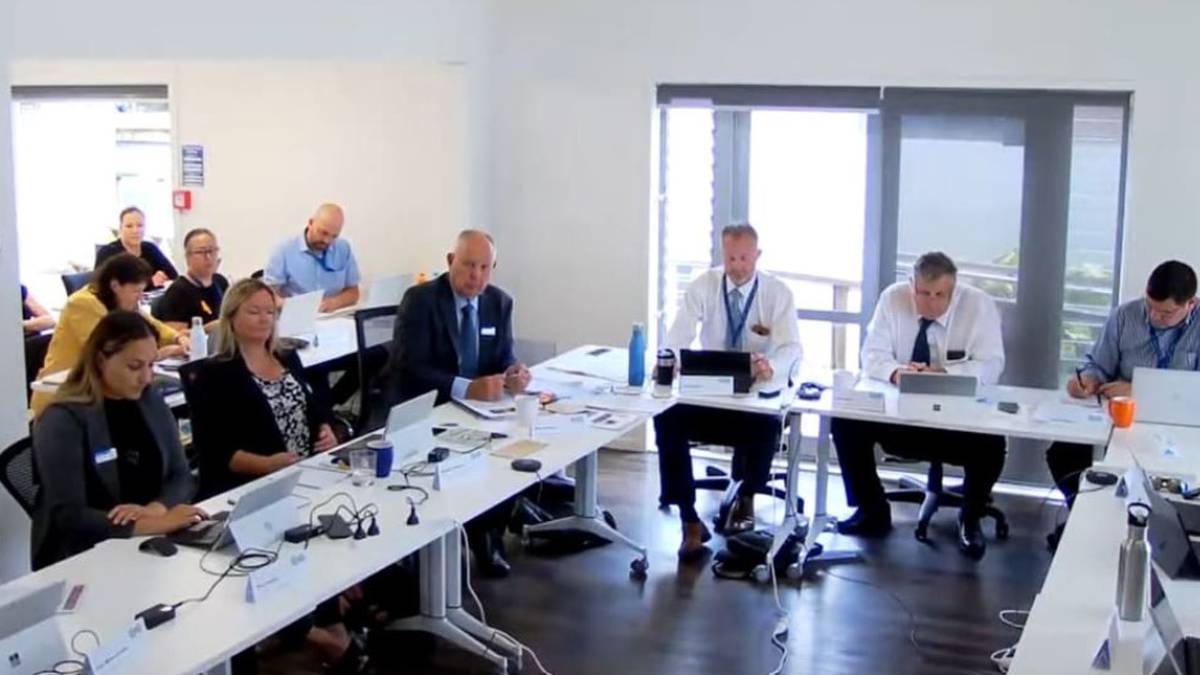Mayor Craig Jepson denied Māori ward councillor Pera Paniora a karakia at the first session of the new Kaipara District Council Wednesday. Video / Kaipara District Council
OPINION:
A newly-elected mayor landed with a thump this past week that echoed through the country.
There’s no such thing in Hawke’s Bay as a newly-elected mayor, of course – not in the first-term sense,
anyway.
The region’s mayors were all voted back in.
No need to announce themselves with bold statements, or sweeping change à la Auckland Mayor Wayne Brown.
(Brown, by the way, has commercial property in, of all places, Hastings; a savvy investment which has been very good to him.)
No, the thump came from outside Hawke’s Bay from new Kaipara Mayor Craig Jepson, who nailed his pallid male colours to the mast pretty quickly by banning karakia from KDC meetings.
Jepson did so at the start of a meeting that held historical political and cultural significance – it was the first to take place with a Māori ward representative at the table.
/cloudfront-ap-southeast-2.images.arcpublishing.com/nzme/RZDNP2WJPQNGM3R6WOI7SO56BA.jpg)
Whom Jepson promptly, in my view, insulted.
Councillors were there to do business and specific religions or cultures should not be included in meetings, he said.
Kaipara’s first Māori ward councillor Pera Paniora (Te Roroa, Ngāti Whātua) protested that Māori were indigenous, and therefore the act of a karakia respects and acknowledges tikanga.
Which was apparently met with the observation from Jepson that he felt quite indigenous, and he then asked Paniora how “Māori” she was.
I’d bet a musket and my best blanket that Paniora was asked how ‘Mowri’ she was.
The notion that someone cannot identify as Māori because they are not 100 per cent Māori, or that karakia or Māori tikanga is part of a “religion”, is pure ignorance.
It’s also a common rant from predominantly white, older men who tend to shout at clouds and think we should forget about the treaty “because no-one lives like that anymore”.
Shall we throw out the Bible then, as a founding document of multiple faiths and cultures?
I heard plenty of racist ignorance during my 17 years as a newspaper editor.
I’ll be honest, I spent a lot of time biting my tongue when dealing with racist (mainly older white male) letter writers decrying, “Why can’t we all be one”, “We need to fight this Māori name change”, and bigoted bluster preceded by “One of my best friends is a Māori, but…”
It’s one thing to be angry at a bigot, which is ultimately futile – it’s another to try to explain to a bigot why their view is ridiculous.
Do we have politicians of Jepson’s ilk in Hawke’s Bay? Of course we do, but they have managed to remain obscured under whatever rock they anchor their half-assed te ao Māori observations on.
Hawke’s Bay councils, by the way, routinely acknowledge Māori tikanga with a karakia at meetings. And good on them.
Any politician who cannot understand the place that tikanga holds in New Zealand, and why Te Tiriti o Waitangi can’t just be torn up and ignored, isn’t fit to be a politician, in my view.
Especially when every city and district council is required to ensure their district plans meet the requirements of multiple plans, policies and strategies, many of which emphasise the importance of Te Tiriti O Waitangi partnerships.
Hawke’s Bay Regional Council has an exciting few years in front of it, with Hinewai Ormsby at the helm. She will bring a new gender and cultural perspective to environmental politics.
As for the white, pale, male and stale brigade sharpening their pencils: have a read of the Treaty, of the circumstances that it arose out of, the British motivations, and the subsequent shame of chiefs who signed it. And have a read of the other treaties that our colonial fathers encouraged other countries to sign in the 1800s.
It wasn’t about creating and sharing wealth through establishing vibrant new multicultural societies.
It wasn’t about all being one.
It was about wealth (land) and power.
Once you understand that, it makes it a lot easier to think about how things are going to look in the future, in a country where we have mutual respect for multiple cultures, but we particularly recognise the indigenous people of New Zealand.
Because ignoring it, like Jepson has, doesn’t make it go away.




